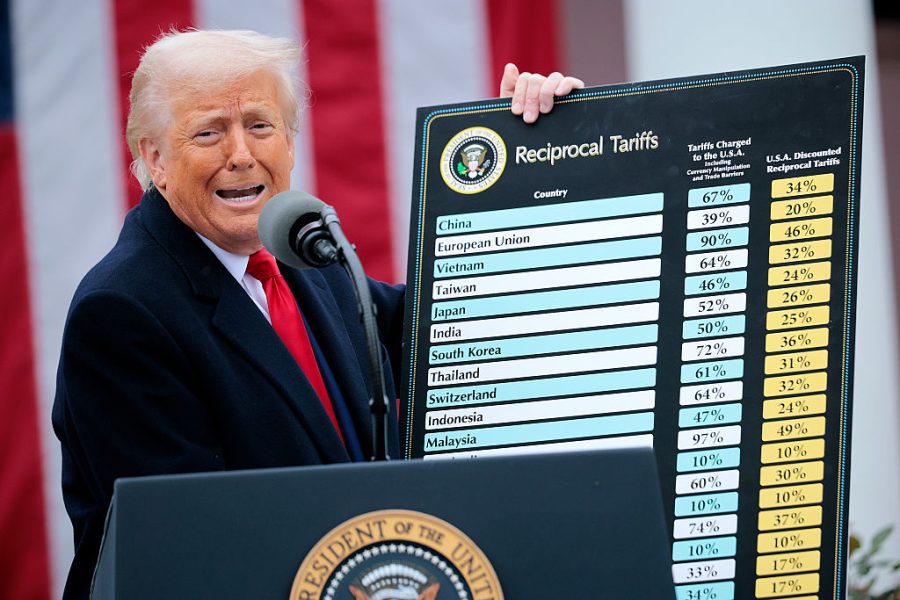Trying to work out what is going on with global trade doesn’t get any easier. Just as the world was settling down to the new reality of Donald Trump’s trade war and governments were stitching up hurried trade deals to minimise the sweeping damage from the tariffs announced on ‘Liberation Day’ in April, the Court of Appeals for the Federal Circuit has thrown a very large spanner into the works. It has ruled that the whole exercise is unlawful because the tariffs were not approved by Congress. They will not be removed immediately – the court has allowed them to remain in place until 14 October to give Trump a chance to appeal to the Supreme Court – which he will almost certainly do. But it does rather look as if the matter of trade tariffs will ultimately be decided by judges.
In some ways, that will suit Trump. The ruling plays to his narrative that the establishment is out to thwart him. Moreover, given that the Supreme Court has a conservative majority, he might expect to win when the case is referred there. But then again, history shows that Supreme Court judges tend to veer away from acting along partisan lines over time. They cannot be guaranteed to favour Trump’s way of doing things. They would not, after all, be voting against tariffs as such – they will be ruling on the extent of presidential executive powers, not on the merits of tariff wars themselves. Trump may well find himself having to take his tariff wars to Congress and take a chance with the very narrow Republican majority there.
The ruling plays to his narrative that the establishment is out to thwart him.
Either way, it will mark a crucial moment in Trump’s presidency. Anyone impressed by the speed and determination of Trump’s first few weeks in office, when executive orders flew out of the White House like confetti, will have to appreciate that his decisions will be challenged in the courts. If the President wanted to stop judicial involvement in the processes of his administration, he would have to change the constitution. Secondly, this week’s court ruling will make Trump look a little less powerful to many foreign observers. Since April, there has been a remarkable lack of foreign leaders prepared to fight his tariffs. Many have meekly given way and agreed to trade deals weighted in the US’s favour. The European Union, which drove a hard bargain with UK prime ministers during Brexit negotiations, was remarkably accommodating when it came to mitigating the damage from Trump’s tariffs. Would the European Commission President Ursula von der Leyen have given in so easily had she seen Trump under the cosh of judges back home?
Trump will no doubt try to turn the appeal court’s ruling to his advantage, turning it into a case of him and the people against the judges. But it certainly changes the mood of the trade war – and produces yet more uncertainty for businesses which are just trying to sell goods and services around the world.







Comments